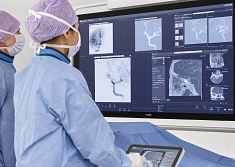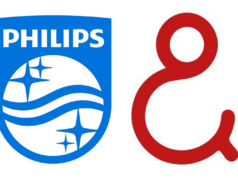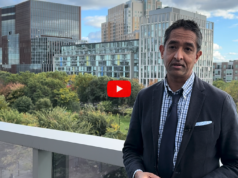
Royal Philips has today announced enrolment of the first patients in both the USA and France into the large-scale WE-TRUST study—a multicentre, prospective randomised controlled trial assessing whether a direct-to-angio-suite (DTAS) workflow improves outcomes for early time-window stroke patients compared to the conventional magnetic resonance (MR)/computed tomography (CT) scan before transfer to the angio-suite pathway.
Recruited at the Baptist Stroke and Cerebrovascular Center (Jacksonville, USA), a comprehensive stroke centre, the first US patient enrolment represents an “important international expansion” of WE-TRUST, according to Philips. The study is already running in several European and South American countries including Spain, Turkey, Germany, The Netherlands, Brazil, and Argentina.
“Every second counts for acute stroke patients,” said Ricardo Hanel (Baptist Neurological Institute, Jacksonville, USA). “It is critically important to act quickly and treat them as soon as possible for better results and a better quality of life. By incorporating US patients into the WE-TRUST trial, we aim to help provide data and outcomes that will inform clinical workflows that, in turn (and more importantly), benefit patients across the globe.”
In addition, Bicêtre Hospital (Paris, France) successfully recruited the first French patient in the study recently, also marking a “significant milestone” in its international expansion, Philips claims. The patient had a severe stroke and arrived directly to the hospital, going straight to the angio suite where—within 30 minutes—Vanessa Chalumeau (Bicêtre Hospital, Paris, France) started the procedure to remove the blood clot in the brain. After the intervention, the patient’s condition improved significantly.
“By using the direct-to-angio approach, we were able to diagnose and treat this patient faster than conventional methods,” said Laurent Spelle (Bicêtre Hospital, Paris, France). “Our goal is to find more effective and efficient ways to diagnose, treat, and manage stroke, ultimately enhancing the quality of life for patients. By joining WE-TRUST, we can help build the clinical evidence for the DTAS workflow—a new treatment approach that has great potential to improve patient outcomes.”
The WE-TRUST trial has an open-label, blinded-endpoint design; aims to engage 16 leading strokes sites and enrol a total of more than 500 patients globally; and is investigating the clinical impact of the DTAS approach, which combines stroke diagnosis and treatment in a single angio-suite session. Enabled by a cone-beam CT imaging tool already integrated into interventional angio-suite systems—such as Philips’ image-guided therapy system, Azurion—the DTAS approach can potentially reduce the time to treatment for early time-window stroke patients, increasing the likelihood of a good clinical outcome.
“At Philips, we are convinced that direct-to-angio workflows, in which stroke patients are diagnosed and treated in the same room, have the potential to save precious minutes and even more precious brain function,” said Atul Gupta, chief medical officer for Image Guided Therapy at Philips. “While that belief is already supported by the results of several single-centre studies, we need a clinical trial with the scale and reach of WE-TRUST to determine whether direct-to-angio has the potential to become the gold standard for stroke care.”
Recently, Philips also announced that the results of a health economics analysis published in the Journal of NeuroInterventional Surgery show that its DTAS treatment pathway for stroke patients can save more than $US3,000 per patient.









